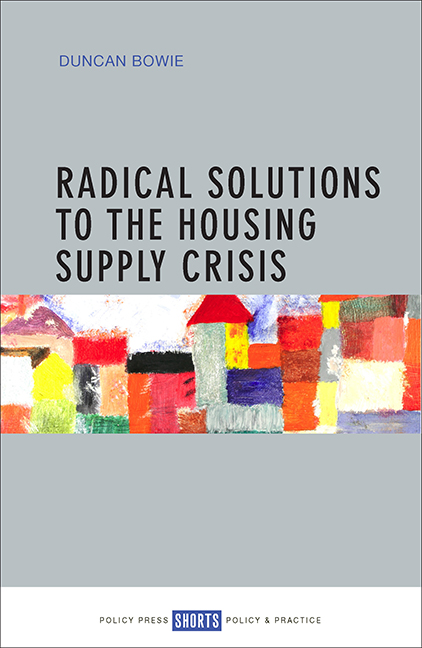Conclusion: The four key issues
Published online by Cambridge University Press: 05 April 2022
Summary
Land, ownership, money and power
Land
Development land needs to be under public sector control. Not only should local planning authorities be able to use their planning powers to determine the allowable land use or uses for a specific site, but they should also specify the type of housing to be developed in terms of built form, the size of units, tenure and affordability. Local authorities should have the power to acquire any such site at existing use value and should be able to develop directly or transfer land to another agency for development on conditions it sets.
Ownership
Where a private developer is undertaking development, the local planning authority should take an equity stake in the development so that part of the benefit of value appreciation is paid to the public sector. Such receipts can be used to fund transport and social infrastructure, as well as housing for lower-income households. Public bodies should not dispose of land except where they retain an equity and control the future use of land.
Money
Investment is required to provide housing, even where land costs may be low. Public investment requires subsidy. The ability of public bodies to borrow from the private sector at market rates is not in itself a solution as all borrowing requires repayment. Investment in public assets is an investment in the public good and for future generations.
Power
The balance of power between the public and private sector must be rebalanced. The public sector must manage the use of the private sector as contributors to the delivery of public policy objectives. Both funding decisions and the choice of policy objectives must be through democratically accountable bodies and the basis all decisions must be transparent.
These are fundamental issues, and any proposition, whether from the government, political parties, academics or practitioners, which fails to operate within these parameters will be inadequate.
- Type
- Chapter
- Information
- Radical Solutions to the Housing Supply Crisis , pp. 167 - 168Publisher: Bristol University PressPrint publication year: 2017



